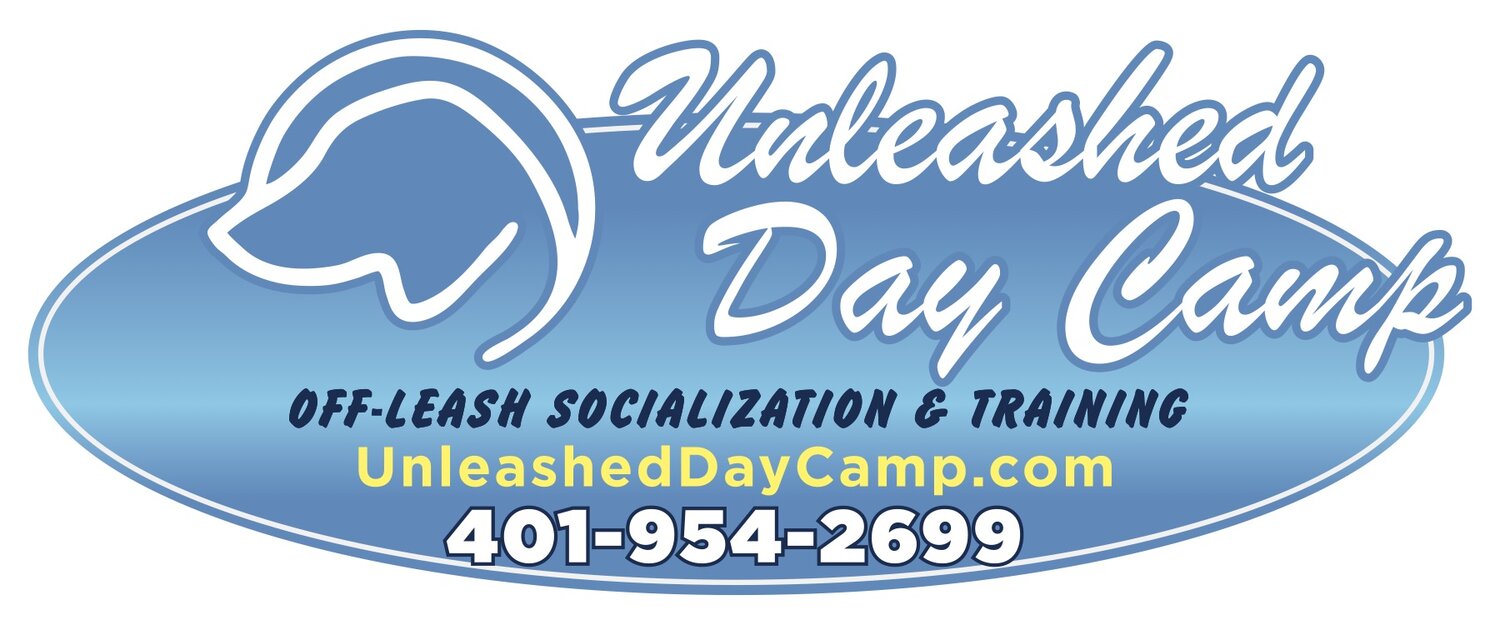FAQs
Who is watching the dogs?
Supervision does not mean merely watching the dogs thru a camera, window or video monitor. It means dogs playing off leash are supervised by a staff member who is physically present in the same space as the off leash dogs 100% of the time. Staff have completed a formal training program, and regularly engages in continuing education. They have knowledge and skills in the areas of canine body language, recognizing stress signals, and appropriate versus inappropriate dog behaviors during off leash play. Staff is trained and skilled in using benevolent leaderships techniques that do not require the use of physical or harsh handling of dogs.
How do you determine playgroups?
First, we review the assessment paperwork to asses the owners description of their dog during play. Then we consider: breed, evaluate obedience cues, and what the assortment of play styles looks like on any given day. We also ask ourselves: does everyone have a playmate? are there any wallflowers? are all the dogs having fun? do you see signs of stress?
How much time do you require to cancel camp registration?
We require 30 days notice to cancel camp registrations.
What is Courteous Canine’s behavioral philosophy?
Courteous Canine believes that positive methods of managing dogs preclude the use of prong collars, choke collars, electronic shock collars, muzzles, and physical manipulation to handle dogs in off leash environments. Staff praises dogs for appropriate behavior and use non-physical corrections to stop inappropriate behavior. Nonphysical intervention includes body blocking, obedience cues, leash walking, rest periods, staff interactions and interruption of the dogs. Staffs proactively use tools that help alleviate stress in dogs such as aromatherapy, calming essences, body wraps, sounds therapy or visual barriers.
What behaviors are not tolerated, regardless of play style?
We do not tolerate 1) Pinning: any time one dog repeatedly pins another dog to the ground; 2) Rolling: any dog that repeatedly is body slammed hard enough to be rolled over; 3) Non-Stop Play: even if two dogs have well-matched play styles, if they don’t take breaks every few minutes we intervene because play that goes on for an extended period of time without interruption is likely to become a problem.
What do the dogs do all day?
When the dogs aren’t playing, we offer a variety of ways to engage them. This might include: one-on-one training, games, lots of attention, constant body scans, snack time, etc… A typical day looks like:
7:30-9:00am | Arrivals: Check in, belonging into cubbies, food puzzles in cabins, bathroom break
9:00-10:00am | Morning cardio: High energy, group play
10:00-11:00am | Individual training session with professional trainer
11:00-12:00pm | Bathroom break, small-group engagement with camp counselors
12:00-2:00pm | Lunch / snack / rest with lights out & soft music
2:00-3:30pm | Afternoon stretch: Group play, leadership exercises
3:30-4:30pm | Tidy Tails: light grooming & individual snuggle time with counselors
4:30-5:30pm | Departures: Unwinding & relaxing while waiting for families at pick up
Why do you offer a formal rest period?
Research studies report that dogs need 12-18 hours of rest. Formal rest periods are offered during play visits to mirror this normal pattern and to allow dogs to reach deeper sleep levels. Providing a private, quiet area for rest periods allow dogs to reach the restful deep sleep levels they need to stay healthy and happy.

